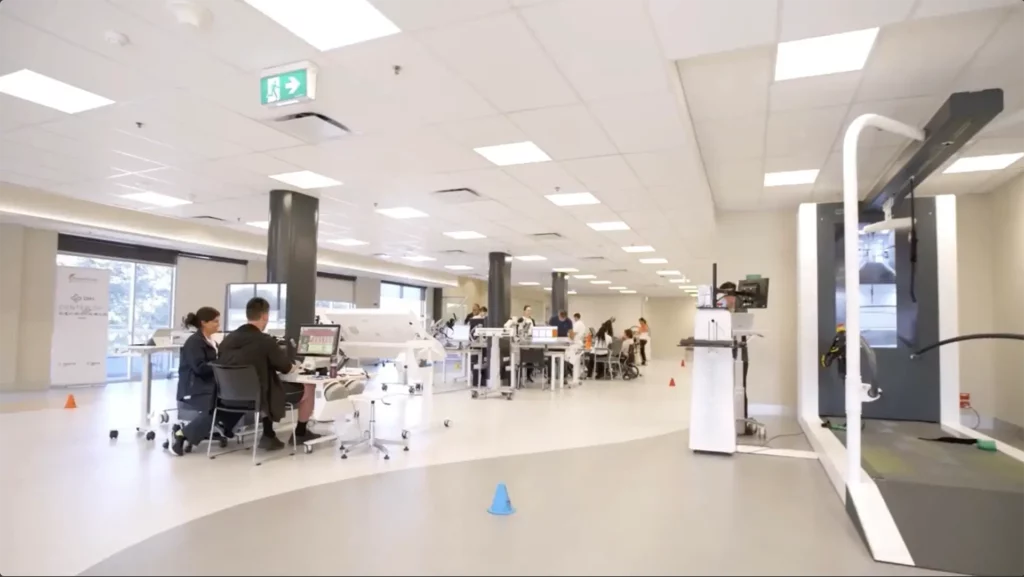A leading centre for neurological rehabilitation, our expert team including physiotherapists, occupational therapists, exercise physiologists, speech pathologists, dietitians, and other allied health professionals work together to help our clients achieve their goals, whether that’s regaining or enhancing movement, building strength, managing symptoms, or maintaining independence.
We’re also home to the largest collection of advanced rehabilitation technology in the Southern Hemisphere, with over 25 devices including robotic exoskeletons, virtual reality, and weight-bearing systems – unlocking new opportunities for rehab and wellbeing, even for those with complex needs.
Recovering from a neurological event such as a stroke, or an acquired brain or spinal cord injury, or living with a condition like Parkinson’s, multiple sclerosis, motor neurone disease, or Guillain-Barré syndrome affects everyone differently. The impact can vary based on the type and location of the damage, as well as each person’s stage of life and individual circumstances.
At Royal Rehab LifeWorks, we take a personalised approach—working closely with you to understand your unique needs, develop a tailored plan, and support your rehabilitation or symptom management, so you can live as well and as fully as possible, for as long as possible.
You’ll find us in Ryde, Penrith, Petersham and Collaroy, making it easier to access high-quality neurological rehabilitation and support close to home.


It’s exciting to be part of an organisation that leads the way in neurological rehabilitation. You really feel like you’re making a difference.
In the spirit of reconciliation, Royal Rehab acknowledges the Traditional Custodians of Country throughout Australia and their connections to land, sea, and community. We pay our respects to their Elders past, present and future and we extend our respects to all Aboriginal and Torres Strait Island peoples.
To improve your experience and ensure your data is protected, please note you will be redirected to PracSuite, our secure booking platform.
If you're ready to sign up now, please select the most appropriate option and complete the relevant form below.
